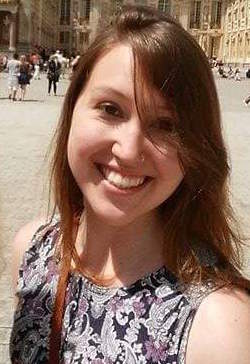CWRU transition to need-aware admissions approved
Case Western Reserve University will officially adopt a need-aware admissions policy despite student opposition last fall, when the possibility was first made known to the student body.
Undergraduate Student Government (USG) President Brian Ward announced the transition to need-aware admissions—which the university has dubbed “Meet Full Need”—in the minutes Secretary Benjamin Tooke sent before the USG General Assembly on Sept. 13. Ward added that he will be working with administrators to ensure two points: that the policy will not negatively affect socioeconomic diversity at CWRU and that university marketing addresses student concerns.
Past student concerns focused on the possibility that need-aware admissions will shrink racial and socioeconomic diversity, the exact opposite of the plan’s purpose. According to Vice President of Enrollment Management Rick Bischoff, a partially need-aware admissions policy will allow CWRU to meet students’ full need by ensuring that the university has enough money to provide lower income students with the financial aid they need to attend. The alternative is gapping, or the failure of the financial aid package offered to meet the difference between what a family can afford to pay and the cost of attendance. As of last year, 25 percent of CWRU students experienced gapping, supposedly due to the university’s inability to provide adequate financial aid funds.
However students at last years’ forum provided examples from Tufts University and Wesleyan University that showed a three percent drop in the enrollment of African-American students at each university after they implemented a need-aware admissions policy. At CWRU, only five percent of students are African-American according to the College Board, making a similar drop unacceptable.
At the Sept. 13 General Assembly meeting, Undergraduate Nursing Representative Edward Bennett reiterated past concerns. “We need concrete things that she’s going to promise as far as diversity. Do we want to consistently have the black population on campus be five percent, or do we expect that to grow within a year timeframe?”
He asked that Ward request a written commitment to increase diversity in his meetings with CWRU administrators, and that in this document administrators promise to abandon the need-aware admissions policy if the university sees a drop in racial or socioeconomic diversity.
Based on the information Bischoff provided during open forums in the fall of 2015, the new policy will consider 10 percent of applicants’ financial status before admitting them. These would be potential students the university is already considering waitlisting, and if they aren’t accepted because of need-aware policies, they would be offered a spot on the waitlist.
Currently, CWRU admissions are need-blind, so a student’s financial status is not considered unless they are being reevaluated for admission from the waitlist, which utilizes a need-aware admissions policy. It is not yet known how the policy may have evolved since last fall’s discussions.

Anastazia Vanisko is copy editor for The Observer and writes for the news section. She is a third-year political science and dance double major, with minors...


